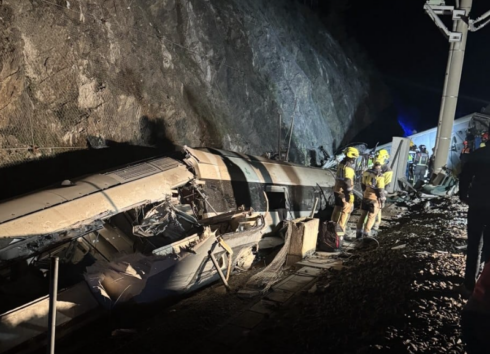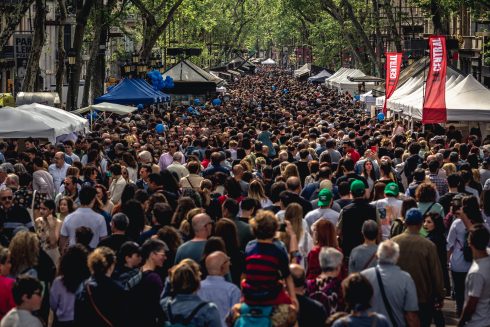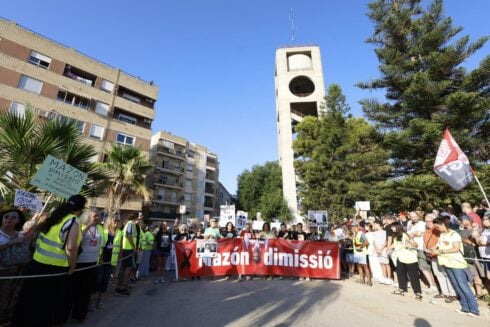SPAIN’S Airbnb crackdown has officially begun, with a July directive from government officials ordering the removal of all unregistered holiday rentals.
The American rental giant will begin identifying “irregular” listings and give hosts a 10-day window to add the Unique Rental Registration Number, or the NRUA in Spanish – failure to comply will result in removal.
Any property with a revoked registration code will be removed within 48 hours.
It comes as Spain’s new short-term rental law entered into effect on 1st July 2025, following a crackdown on the estimated 65,000 Airbnb holiday rentals operating in breach of regulations.
“Starting in August 2025, Airbnb will send information required by regulations to the Ministry of Housing on a monthly basis, including state and regional registration numbers [of listings],” a statement from Spain’s Ministry of Housing said.
“The goal is to end fraud in tourist or seasonal rentals that conflict with citizens’ right to decent housing.”
255,172 applications already received
Holiday rental owners in Spain have been warned of the measures since the approval of Spain’s Royal Decree 1312/2024 back in early January.
The government granted a six-month grace period before enforcement on 1st July.
By 7th July, Spain’s Ministry of Housing had received a total of 255,172 applications for registration on the new holiday rentals list – this is possible online via the One-Stop Shop portal, or Ventanilla Única Digital de Arrendamientos.
Regulations apply to all short-term holiday lets, including tourist rentals, seasonal rentals and room-based rentals. Rules apply to all online property rental platforms, such as Airbnb, Booking.com, Vrbo, and more.
Airbnb will add a second field to its registration forms for hosts, requiring hosts to include both a regional registration number and the new national registration number.
The Ministry of Housing said that 83% of applications received are for properties in five Spanish territories: Andalusia, Balearic Islands, Canary Islands, Catalonia and the Valencian Community.
Registrars believe the number of applications will soon align with the National Institute of Statistics’ (INE) estimate that 381,837 tourist rentals currently exist in Spain.
Spain EU’s first country to enforce regulations
It comes as Spain fast-tracked the adoption of Regulation EU 2024/1028, which established a timeline for EU countries to begin cracking down on holiday rental fraud in 2026.
Spain is now the first EU nation to enforce the guidelines.
Booking.com has already removed 4,093 holiday rentals after detecting “illicit” listings on its platform. The removals were for properties based in Asturias, Cantabria, Castilla y León, Navarra, La Rioja and Castilla-La Mancha.
In May, Spain’s Ministry of Housing ordered Airbnb to immediately take down 5,800 listings from a total of 65,935 considered to be in breach of new regulations – these were listings without a registration number, properties that did not specify if the owner was a private individual or a company, or where registration numbers did not match official registers.
Airbnb had an appeal rejected in June, meaning the order still stands.
Complaints about the rollout
Just two weeks since the Ministry of Housing announced Airbnb’s enforcement of regulations, complaints are already surfacing.
According to Joaquín Gómez-Villares, a property law specialist, hosts are seeing “uneven decisions” across different regions in Spain.
“We’ve had cases where one office accepts the application and another rejects it, despite being submitted with identical documentation,” he told Idealista.
“The idea is commendable, but give us a homogeneous system,” he said.
Meanwhile, Spanish autonomous communities such as Andalusia, the Canary Islands and the Valencian Community have challenged the national register’s legality. They argue that most short-term lets already have a regional tourist licence.
“This new measure just layers additional complexity on top of existing structures,” says Gómez-Villares. “The red tape is overwhelming.”
Gómez-Villares argued that tourist apartments make up less than 4% of the national housing stock, suggesting that the root of Spain’s housing crisis is not with holiday rentals.
Click here to read more Spain News from The Olive Press.








